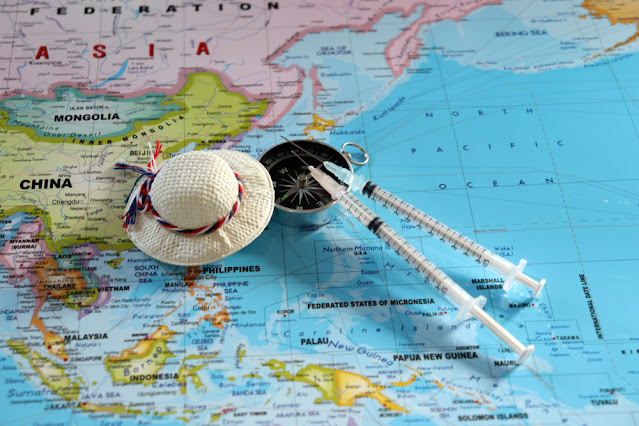What are some common travel-related illnesses?
As the world recovers slowly from the devastating COVID-19 pandemic, fears of highly contagious diseases remain fresh in our minds. For travellers, these fears are heightened as they expose themselves to countless environments, cultures, lifestyles and ecosystems their bodies are not accustomed to.
Let’s look at some of the most common traveller’s illnesses.
Traveller’s Diarrhoea
Stemming from the consumption of unhygienic food and water, travellers’ diarrhoea is the most common condition faced by travellers worldwide. However, hepatitis A is a far more worrying consequence of food and water contamination, and the biggest reason you should be careful what your diet is while passing through or staying at even the most popular travel destinations worldwide.
To get yourself immunised against these and other travelling-related diseases, check into a travel clinic or our travel vaccinations services in Chislehurst before departing.
Malaria, Dengue Fever, and Yellow
Fever
Malaria, dengue, and yellow fever are three common diseases that commonly afflict travellers in developing parts of the world, primarily contracted via mosquito bites. Protection against mosquitoes is easily available in regions where these diseases are common but are often not enough for travellers whose bodies are not used to high exposure to pathogens. Travellers are highly recommended to vaccinate against these infections from a trusted immunisation centre like our travel vaccination services in Bromley, Chislehurst, or Mottingham.
Rarer Encounters
Slightly
rarer encounters can involve typhoid fever, Japanese encephalitis, rabies,
tetanus, chikungunya, leptospirosis, or infection by a parasite. At your
pre-travel appointment, inquire from your doctor about these conditions and how
they are best avoided while travelling. If your physician recommends getting
vaccinated, booking immunisations for yourself and your travel companions at
travel vaccination services in Mottingham, Bromley, or Chislehurst well before
departure is in your best interest.
Pond Pharmacy Has You Covered For
Safe Travel!
Ideally, pre-travel appointments should be scheduled at least six weeks before departing. This gives your doctor enough time to finish all immunisation regimes and monitor you for adverse vaccine reactions. It is also a good idea to stay in touch with your travel medicine centre team throughout your trip or tour, checking in regularly and reporting as soon as you feel unwell.
Protect
yourself from travel-related illnesses with destination-specific travel vaccinations
with Pond Pharmacy travel clinic services and health
advice if you plan a trip abroad. Consult one of our travel health specialists
for information on the vaccines and medications you may need to stay healthy
while travelling.




Comments
Post a Comment